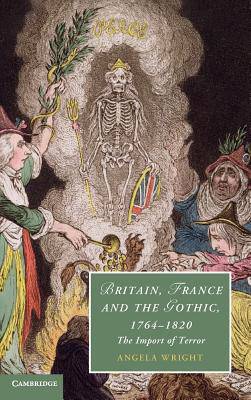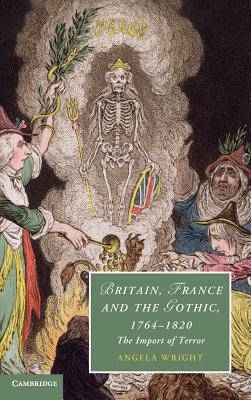
Je cadeautjes zeker op tijd in huis hebben voor de feestdagen? Kom langs in onze winkels en vind het perfecte geschenk!
- Afhalen na 1 uur in een winkel met voorraad
- Gratis thuislevering in België vanaf € 30
- Ruim aanbod met 7 miljoen producten
Je cadeautjes zeker op tijd in huis hebben voor de feestdagen? Kom langs in onze winkels en vind het perfecte geschenk!
- Afhalen na 1 uur in een winkel met voorraad
- Gratis thuislevering in België vanaf € 30
- Ruim aanbod met 7 miljoen producten
Zoeken
Omschrijving
In describing his proto-Gothic fiction, The Castle of Otranto (1764), as a translation, Horace Walpole was deliberately playing on national anxieties concerning the importation of war, fashion and literature from France in the aftermath of the Seven Years' War. In the last decade of the eighteenth century, as Britain went to war again with France, this time in the wake of revolution, the continuing connections between Gothic literature and France through the realms of translation, adaptation and unacknowledged borrowing led to strong suspicions of Gothic literature taking on a subversive role in diminishing British patriotism. Angela Wright explores the development of Gothic literature in Britain in the context of the fraught relationship between Britain and France, offering fresh perspectives on the works of Walpole, Radcliffe, 'Monk' Lewis and their contemporaries.
Specificaties
Betrokkenen
- Auteur(s):
- Uitgeverij:
Inhoud
- Aantal bladzijden:
- 234
- Taal:
- Engels
- Reeks:
- Reeksnummer:
- nr. 99
Eigenschappen
- Productcode (EAN):
- 9781107034068
- Verschijningsdatum:
- 18/04/2013
- Uitvoering:
- Hardcover
- Formaat:
- Genaaid
- Afmetingen:
- 152 mm x 231 mm
- Gewicht:
- 476 g

Alleen bij Standaard Boekhandel
+ 222 punten op je klantenkaart van Standaard Boekhandel
Beoordelingen
We publiceren alleen reviews die voldoen aan de voorwaarden voor reviews. Bekijk onze voorwaarden voor reviews.









